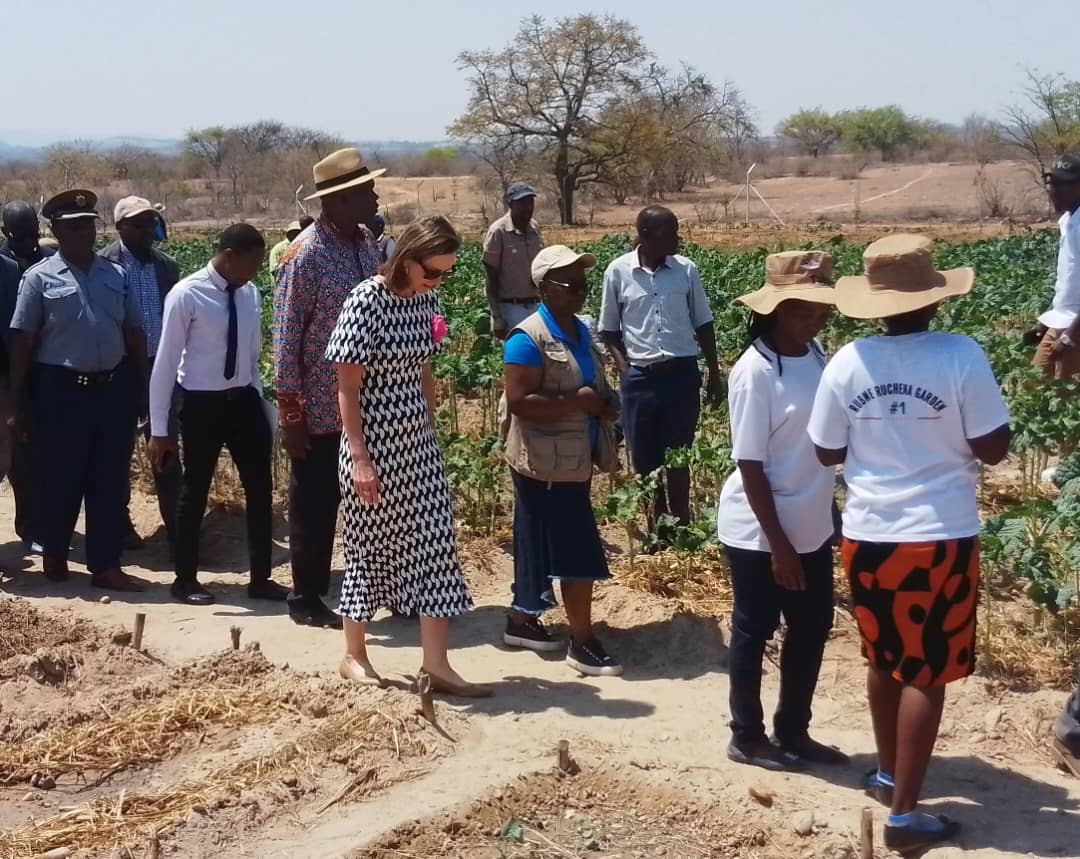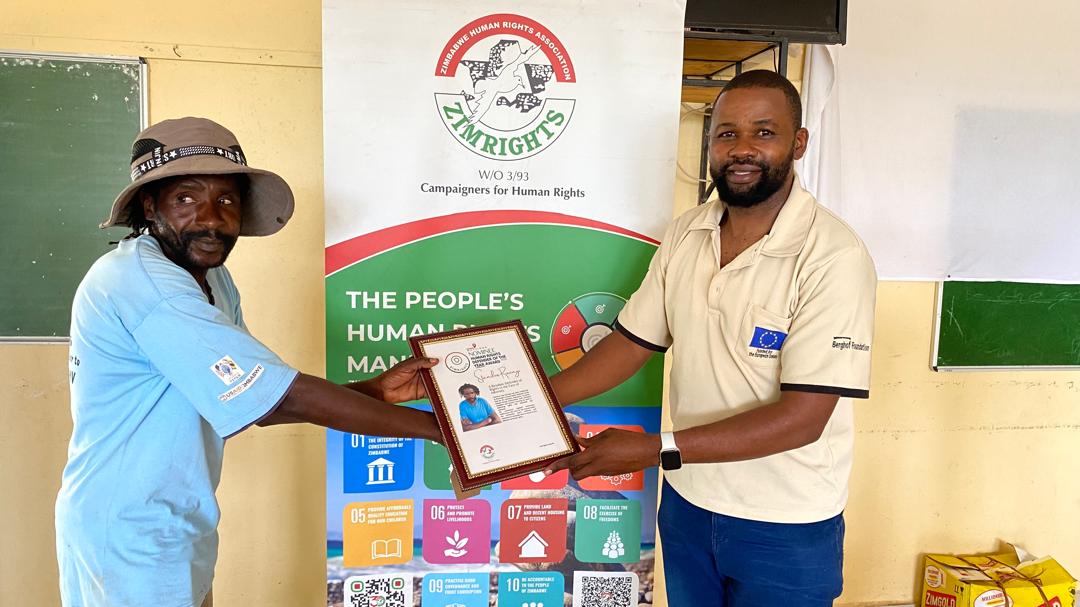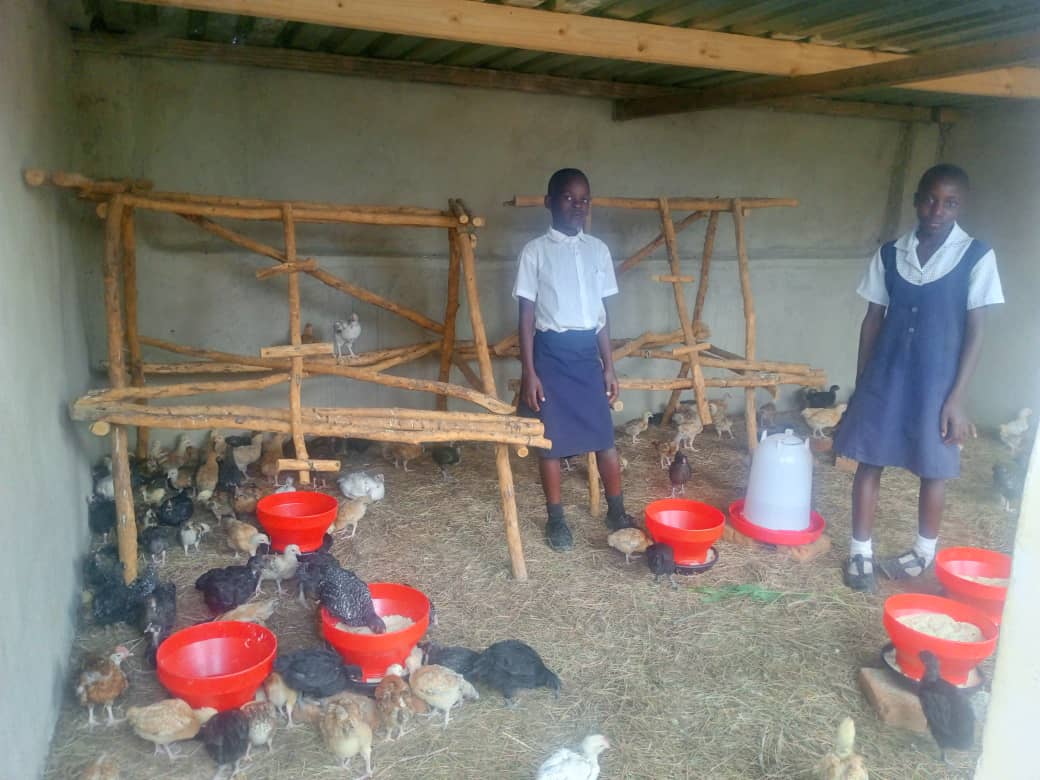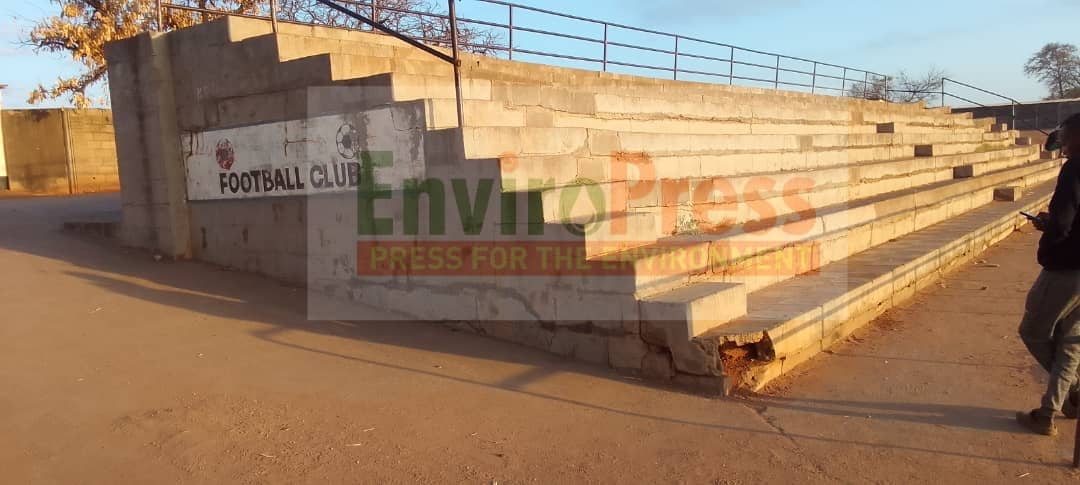Rutendo Chirume
United Sates Ambassador to Zimbabwe, Pamela Tremont last week opened a solar-powered micro-irrigation project at Rubweruchena garden in Tagwirei village of Ward 11 in Chivi district.
The project is part of work being undertaken by USAID though its development partners to assist communities adapt to the effects of climate change such as the ongoing El Niño – induced drought.
Up to 567 households are now benefiting from the micro irrigation scheme with young people and women being among the beneficiaries. The beneficiaries grow such vegetables as cabbage, onion and covo, tomato, butternut and green pepper for sale.
Chivi is largely a semi-arid district which is vulnerable to grave climate and economic shocks.
In her official remarks during the handover, Tremont said the project was one of many others that demonstrated the United States’ commitment to assisting Zimbabwe to become a food self-sufficient country.
“This project is a model of how the US seeks to help Zimbabwe become a self-sufficient country. We are handing over all the community assets in Chivi and Zaka districts, and these assets include four dams, 44 solarized boreholes and 44 productive gardens. The handover today is a celebration of community’s self-reliance and ownership of these assets,” said Tremont.
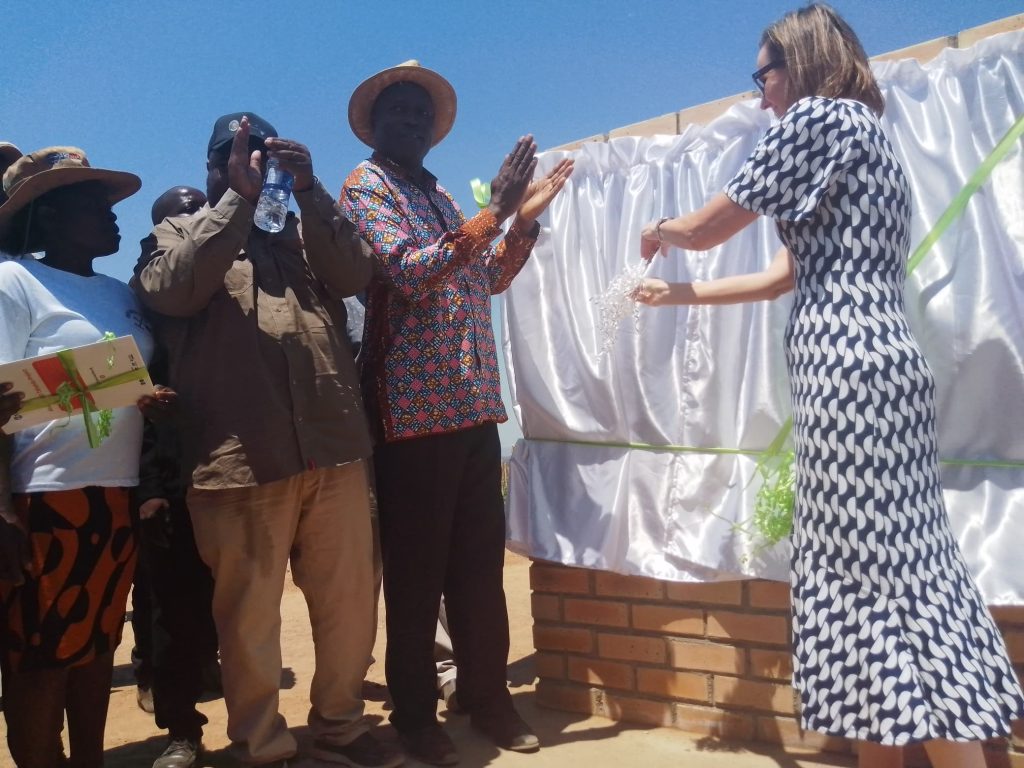
Patience Mukuze, one of the beneficiaries who is also the chairperson of the garden project told EnviroPress that the beneficiaries were now set to make the best of the assets.
“We have US$375 and US$400 in savings we made by selling tomatoes and rape in our previous and initial batches. Personally, I have managed to start a poultry project and I have drilled a borehole at home. I can now pay my children’s school fees without as much hardship as before,” said Mukuze.
The Rubweruchena Micro Irrigation Project is part of the seven-year-long US$80.3 million Takunda project being implemented by Care Zimbabwe with support from USAID. The Takunda project benefits over 321 000 people in the provinces of Manicaland (Buhera and Mutare districts) and Masvingo (Chivi and Zaka districts).
According to Zimbabwe Livelihoods Assessment Committee (ZIMLAC) 2024 report, food insecurity in Masvingo is currently at 56 percent as compared 34 percent in 2018.

